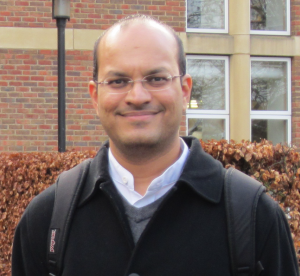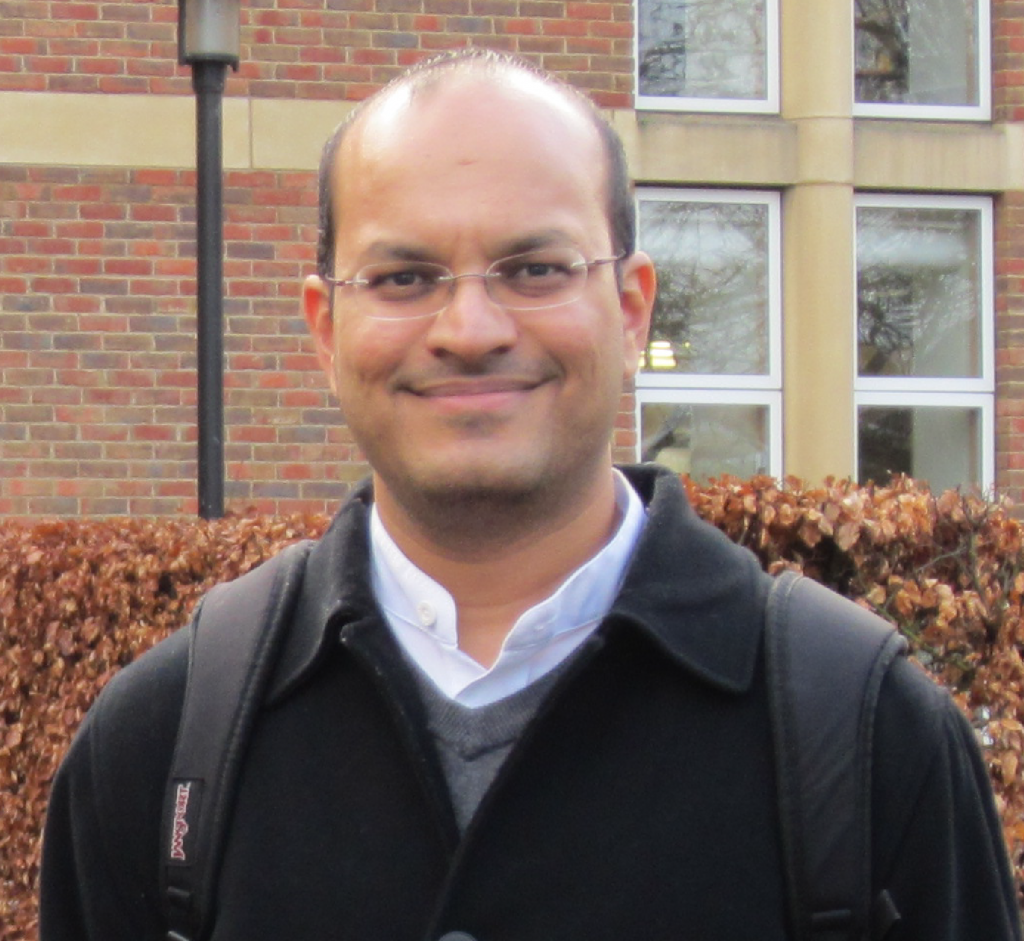New Faculty Profiles showcase GSA members who are establishing their first independent labs. If you’d like to be considered for a profile, please complete this form on the GSA website.

Santhosh Girirajan
Assistant Professor (since 2012)
Department of Biochemistry and Molecular Biology
Department of Anthropology
The Pennsylvania State University
Lab website
Twitter: @GirirajanLab
Research program:
We are interested in understanding the genetic basis of neurodevelopmental disorders such as autism and intellectual disability. Recent studies, including my postdoctoral work, have identified large copy-number variants (CNVs) and gene-disruptive single nucleotide variants as potentially causative for these disorders. However, the functional mechanisms connecting specific genes within disease-associated CNVs and genes with severe mutations to disease pathogenesis are not completely understood. The overarching goal of our research is to identify genes, genetic interactions, and mechanisms causing disease using clinical, genomic, computational, and model organism studies. Specific projects in the lab involve the following:
- Discovering causative genes and genomic regions as well as genetic modifiers in affected children and families to facilitate improved diagnosis, management, and counseling
- Recapitulating neurodevelopmental phenotypes in model organisms by engineering mutations in disease-associated genes
- Identifying genetic interactions and disease-associated functional pathways to identify vulnerable and effective molecular targets for potential therapy
My laboratory is always looking for motivated undergraduate students, graduate students, and postdocs to work at the interface of human genetics, functional genomics, and computational biology. If you are interested, please feel free to contact me with questions about our work or to learn about training opportunities in the lab.
How has being a member of GSA helped you advance in your career? Why do you think societies like GSA are important?
Societies such as the GSA have been very encouraging to young scientists in advancing their research in many ways (travel awards, fellowships, professional development, reduced registration fee for meetings, etc.). The meetings organized by GSA are broad, cover a wide-range of topics in biology and provide new perspectives to everyone within and outside of a research field. I think that a strong community of researchers, under the auspices of societies such as GSA, is important to maintain high standards of research, especially, for journals such as GENETICS and G3: Genes|Genomes|Genetics.
“We work at the interface of human genetics and functional genomics. I like the fact that everyday is a learning experience in the lab. The excitement of finding something new and unexpected in science trumps everything else in life!” – Santhosh Girirajan
Previous training experiences:
- Medical Degree (MBBS): Bangalore University, India (2001)
- Graduate work: PhD in Human Genetics, Virginia Commonwealth University (2003–2008); Advisor: Dr. Sarah Elsea
- Postdoctoral work: Department of Genome Sciences, University of Washington School of Medicine (2008–2012); Advisor: Dr. Evan Eichler
Teaching:
I teach two courses, Genomics (BMMB/IBIOS551) for graduate students in the Fall semester and Functional Genomics (BMB484) in the Spring semester. The syllabi cover topics ranging from genomic complexity, human genome project, model and non-model organism genomes, evolutionary genetics, genome sequencing (methods, analysis, and applications), and functional genomics (regulation, model systems).
Students are also provided with a series of classical papers on my “dream topics to teach” that I had conceived as a graduate student. These papers are selected from a list of publications that I have amassed since graduate school. It is my hope that these efforts will encourage students to get into the habit of reading papers, and to remain up to date with the latest research further along in their careers.
Teaching has altered the way I understand concepts, which in turn has enhanced my own research. Oftentimes, I have had students from previous semesters show up at my office excitedly talking about how they are now working in a lab that uses several concepts discussed in my genomics class—that makes my day!
What do you like to do when you’re not at work?
I usually spend time with my two-year old son. I also like to cook, listen to music, and read (non-fiction).































